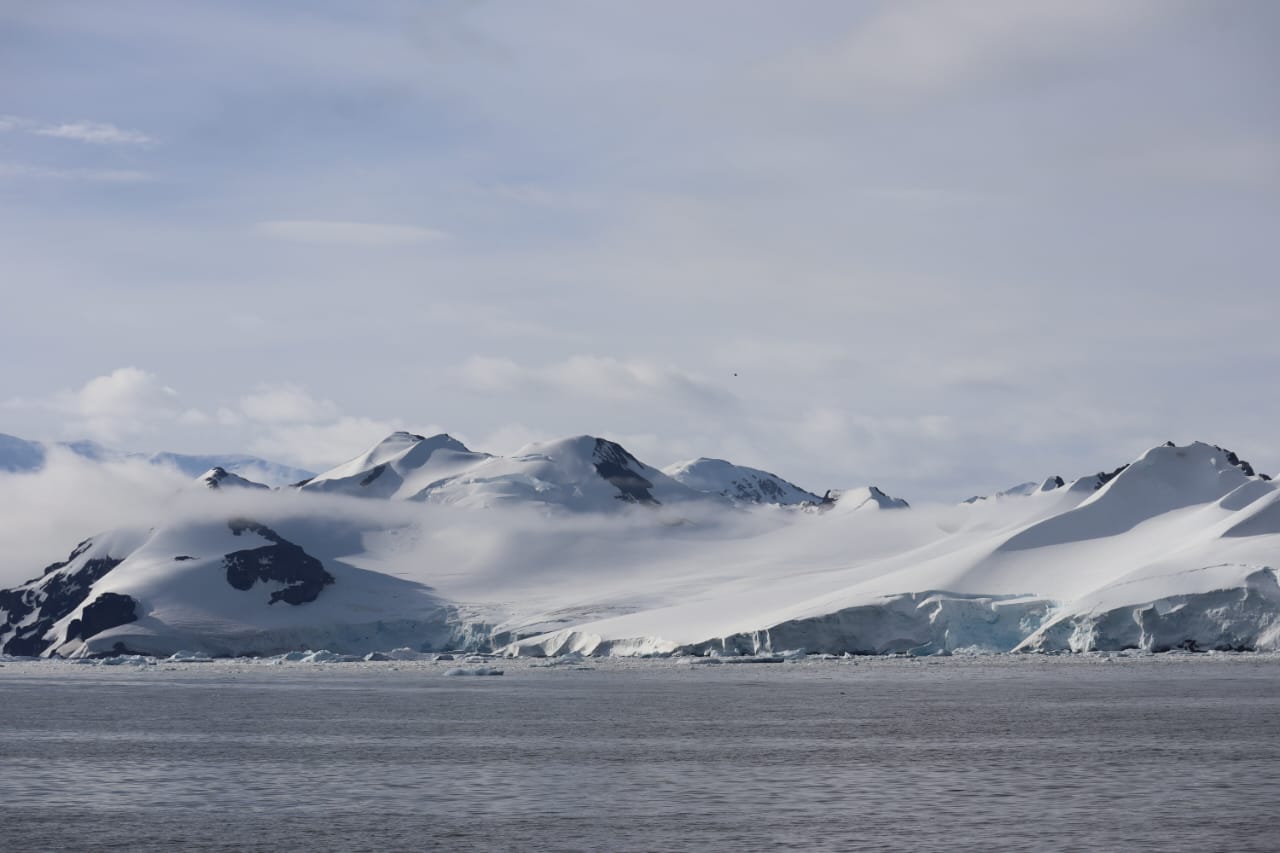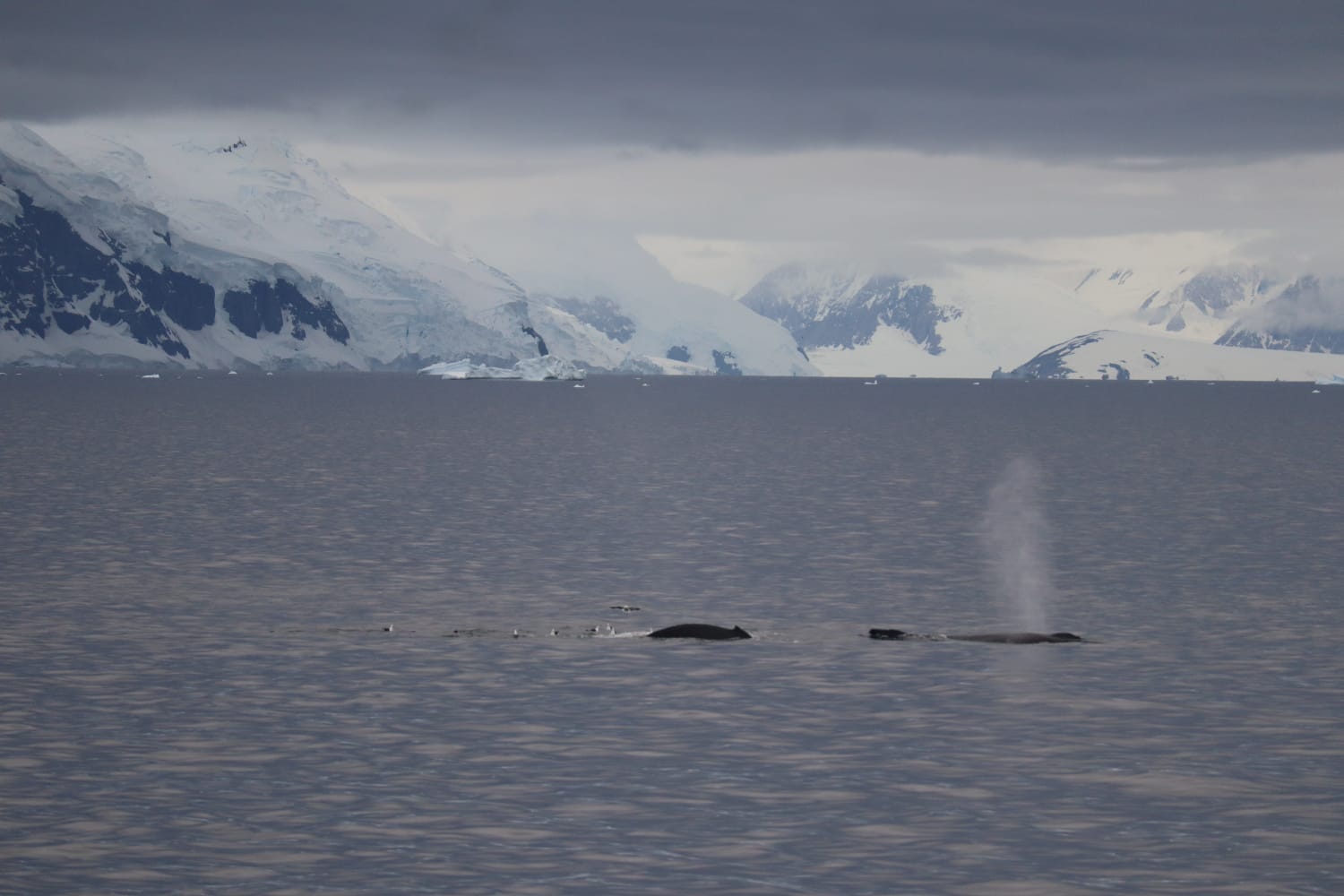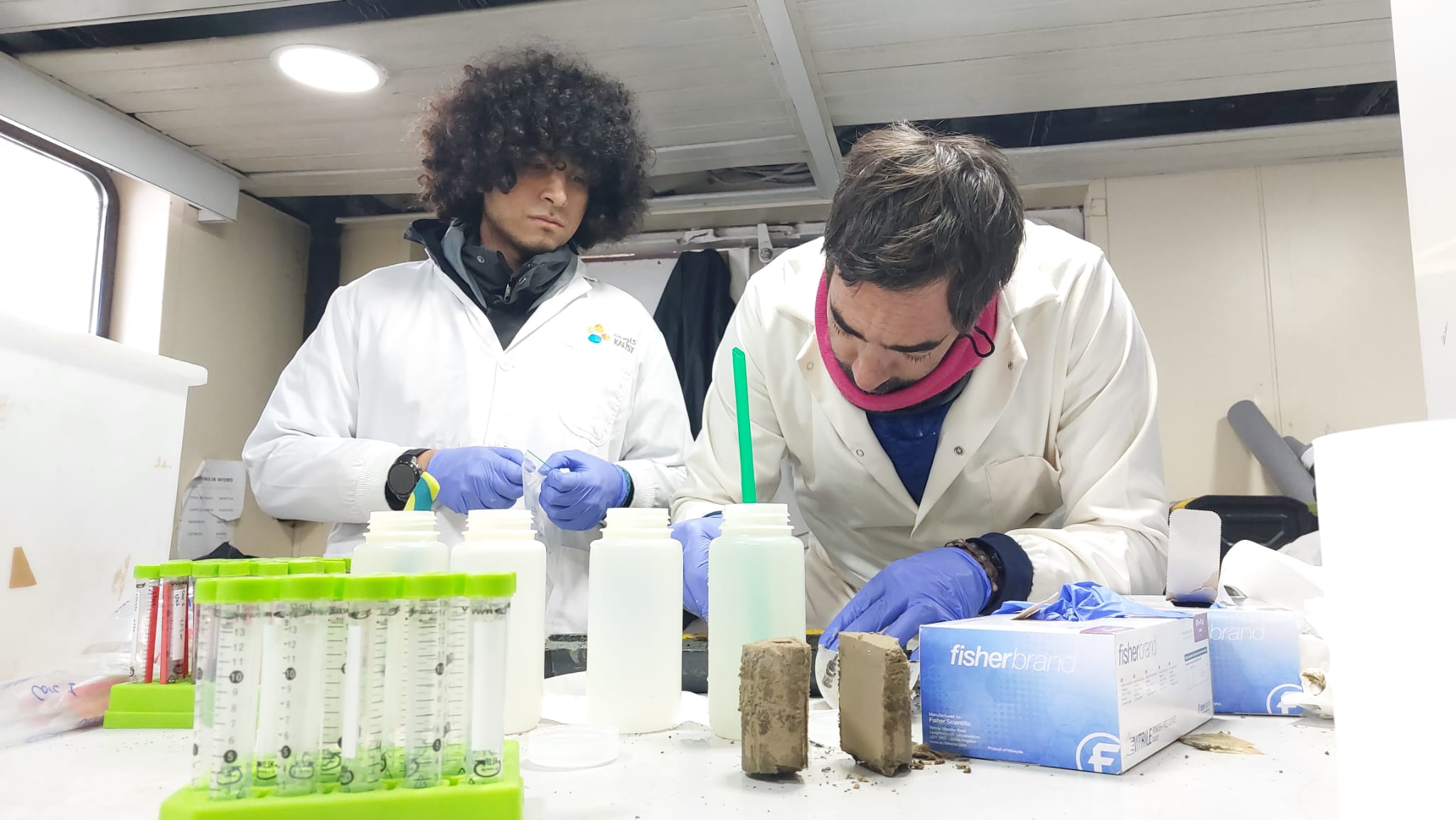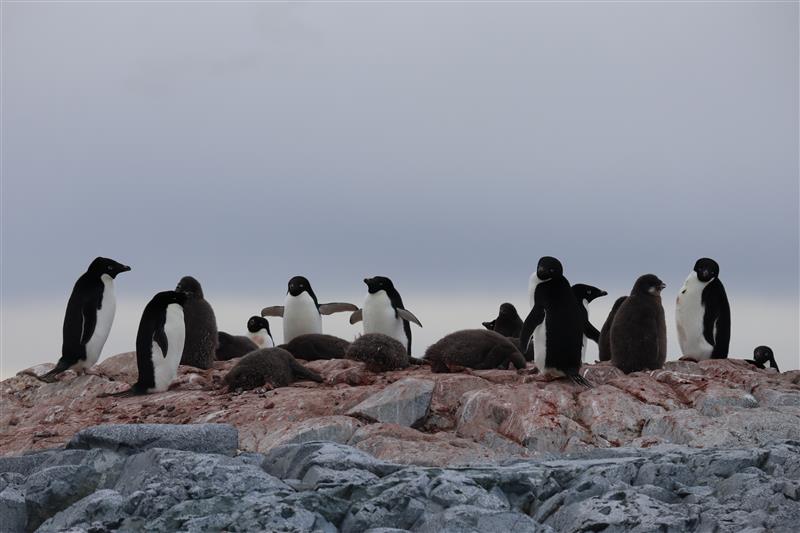KAUST scientists lead Saudi Arabia's first scientific mission to Antarctica

KAUST is the first Saudi institute to join a scientific mission in Antarctica.
KAUST has sent the first researchers from Saudi Arabia on a scientific mission to Antarctica since signing on to the Antarctic Treaty in May 2024. Carlos Preckler and Diego Rivera, who work with Ibn Sina Distinguished Professor Carlos Duarte, collected samples from the continent to understand how the recovery of whale populations acts as a natural mitigator of climate change by examining their effects on carbon sequestration. The mission ran from January 11 to February 27.
Whales play a crucial role in the marine ecosystem. Their migration throughout the sea, both in distance and in depth, passes through their huge bodies essential nutrients that fertilize sea life like plankton that sequester carbon. Even upon death, whales contribute to carbon sequestration, as their massive carcasses deposit large amounts of carbon on the seafloor, isolating the carbon from the atmosphere for millennia. Based on these and other effects whales have on marine ecosystems, some economists have estimated that the value of the whale population easily exceeds $1 trillion in carbon removal alone.
The Saudi-based research team has collected ocean samples that they will use to provide the first quantitative measurements of the impact whales have on carbon capture and thus climate change. The information gained will assist in assessing the economic benefits of whale hunting and conservation policies and other activities that affect marine life. Antarctica is deemed the best choice for the study of whale populations because of the well-chronicled and intense whale hunting in the 20th century that depleted the populations of great whales.

A whale seen on the mission
“With about ten Antarctic expeditions of experience I am pleased to have my small, but capable research team return to Antarctica, this time, under the banner of a Saudi institution, to contribute to peace through scientific research and deriving meaningful insights into the role of ocean giants in enhancing carbon sequestration in the polar regions of the planet," said Duarte. Preckler and Rivera are joining a team of researchers on the R/V Hesperides, which Duarte has ridden before in some of the previous Antarctica missions he led prior to joining KAUST.

Rivera (left) and Preckler on the R/V Hesperides.
Because whale hunting has depleted whale populations in Antarctica to 10% of their historic peak, Duarte and his team expect the samples, which will carry informative isotopes and chemistry and DNA, will allow them to reconstruct historical whale population dynamics for the past 400 years and correlate the dynamics of whale depletion and recovery with carbon sequestration, krill abundance and ocean productivity over the same period.
The expedition is being funded by the Convex Science Survey, which includes more than 60 scientists, including Duarte and Preckler, who are using satellite imaging, computer modeling, and field studies to study of how the oceans control carbon levels. KAUST is the only Middle Eastern or Asian university to have researchers involved.

New friends made during the mission..
Saudi Arabia became the 57th country to sign onto the Antarctic Treaty, which was originally negotiated in 1959 and had 12 signatories. Signatories are expected to conduct substantial research activity in and around the world's coldest desert.